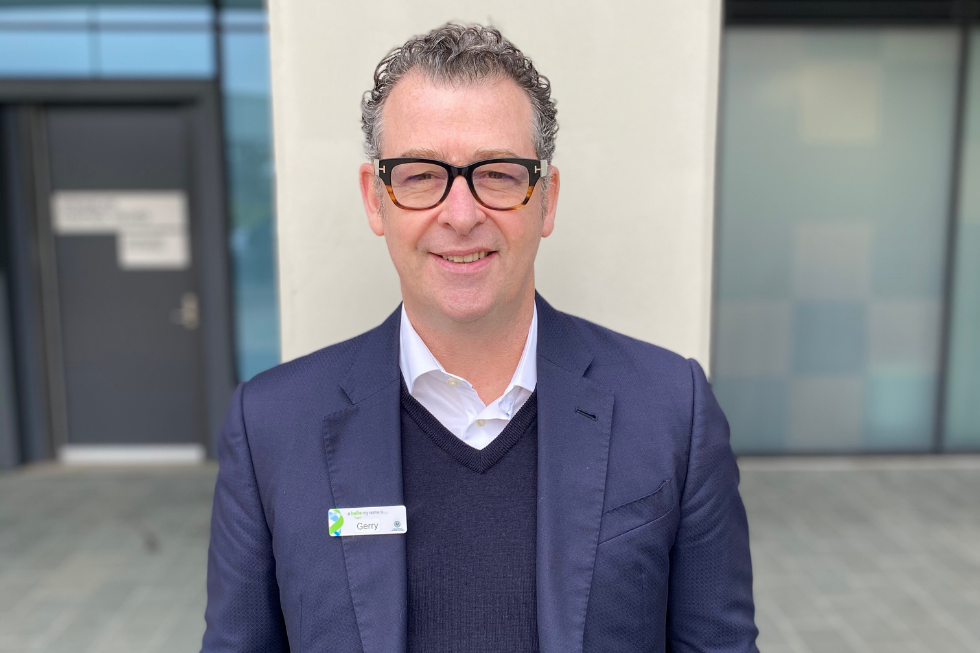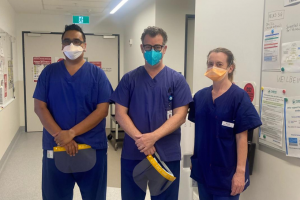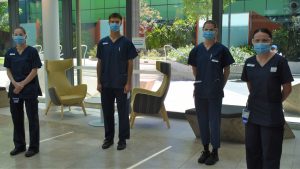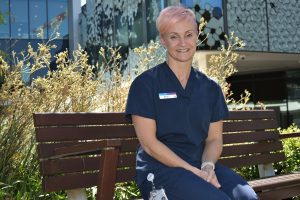By CALHN Medical Services Executive Director Professor Gerry O’Callaghan
It’s not often we get the opportunity to learn from our colleagues in a different environment, so it was a great privilege to be part of a contingent from the Central Area Local Health Network (CALHN) to Northern Health to learn about their COVID-19 response.
Together with my nursing colleagues from the Emergency Department and Intensive Care Unit at the Royal Adelaide Hospital we were able to learn from, and work with the team at Northern Health as part of their COIVD-19 response.
We talk a lot about COVID-19 as a disease and a pandemic, but it’s actually something that happens to families and communities. When there are groups of people who are not vaccinated and then exposed to COVID, multiple generations in the same family become ill. The frail and the elderly die, and the loss and devastation for that family is extraordinary.
We saw grandmothers and grandchildren in the same ICU, and elderly couples in the hospital at the same time as their children where the children survived but their parents didn’t. The impact for these families and communities is devastating, particularly when it was avoidable had they been vaccinated.
The majority of patients who became ill were not vaccinated and almost all of the patients in ICU were unvaccinated. More than 80 percent of the community in the area where we worked are vaccinated, but it was those who were unvaccinated that were in the ICU. Many of the individuals in the ICU didn’t speak English as a first language and were from a diverse range of ethnic backgrounds.
Caring for them required time and attention with staff having to communicate with families outside of the hospital, with limited access and in different languages. Mohammad S Razai, a British primary care academic, has recently reminded us this issue is neither new nor simple, and requires a proactive and strategic response targeted to specific communities in order to build trust and confidence in the health system.
The culture in the Northern Health hospital was very positive, despite the duration of the pandemic and the system being under prolonged pressure, particularly in nursing. Clinicians were helpful and cooperative, organisational leaders were accessible and supportive, and managers were flexible and proactive in checking in on their teams.
It was very reassuring for us all to see the degree of resilience and to see what is achievable with effective leadership and a strong team culture. Scott I Tannenbaum et al provide an excellent review of evidence-based strategies to improve teamwork in the context of the pandemic and we were fortunate to see these strategies in action, including:
- Recognising wins and successes large and small
- Ensuring teams sustain shared mental models
- Not forgetting the people behind the scenes
- Emphasising and promoting team mutual monitoring
- Taking actions to build and sustain psychological safety
- Helping team members address concerns for those at home
- Consciously boosting team resilience
We’re very grateful for how generous our colleagues at Northern were with their time as it has helped to inform our own preparedness.
We’ve been able to share our insights with colleagues at CALHN and importantly facilitate multiple meetings and workshops with clinicians at Northern and their counterparts here at CALHN.
Each of us have taken something different and complementary from our experience and our COIVD-19 response will benefit as a result. Thank you to all our colleagues and families who supported us to travel to Northern Health.



